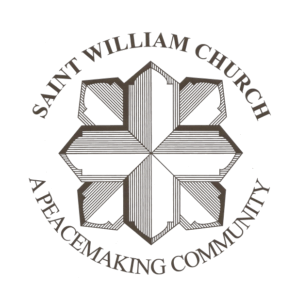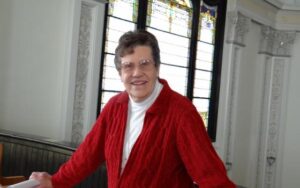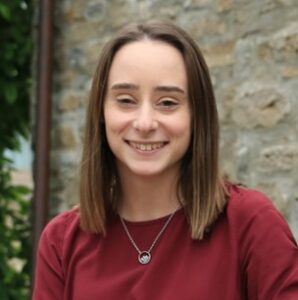Walking Forward Together: Mauricio López speaks about synodality in the Church

Ellie Hidalgo, Mauricio López, Toni Miranda and Silvia Muñoz at the Ignatian Spirituality Center in Miami on July 3.
[On July 3, I was able to attend a powerful, inspiring conference on synodality, held in-person in Miami. Mauricio López, a prominent lay leader in the Latin American Church, spoke about the essence of the synodal process. His remarks profoundly deepened my sense of what we are seeking to embody through Discerning Deacons. I’m excited to share some of my first-hand reporting and reflections below. As always, thank you for reading and engaging in our unfolding work.]
The essence of the synodal process is a commitment to listening to others and keeping our hearts open to conversion in order to reconcile divisions and discern how to move forward as God’s people, said Mauricio López at a conference on synodality hosted by the Ignatian Spirituality Center in Miami on July 3.
López is a member of the commission preparing for the Synod of Bishops on synodality in the Church, co-founder of the Pan-Amazonian Ecclesial Network (REPAM), director of pastoral action for the Catholic Bishops in Latin America (CELAM), and former president of the global network of Christian Life Communities. In preparation for the Synod of Bishops on the Amazon, he led the listening process in parish assemblies that brought together more than 87,000 people throughout the region.
“Synodality is not an event. It’s a way of being Church,” López emphasized. The divisions and conflicts seen today in our political, cultural and religious systems can block discerning how to move forward together, he said. People are often fearful of diversity and fearful of making mistakes. “Synodality is an instrument with which to approach one another and to listen to one another and to find a pathway that permits reconciliation in order to follow Jesus,” he said.
López quoted what Pope Francis has said about synodality: “It is precisely this path of synodality which God expects of the Church of the third millennium.” Synodality is not something new, López pointed out. It is rooted in the early Christian communities when the disciples debated whether or not pagans and people of diverse cultures could be invited to follow Jesus. They gathered together in prayer to discern God’s will. Recognizing the other is central to the work of synodality, he said. To construct the reign of God is to reconcile divisions and to build communities where all belong and all have gifts to contribute.
López cited the biblical story of Bartimaeus, who was relegated as a poor, blind outcast, and shouts for Jesus. When Jesus asks him what he wants, he responds “to see.” López encouraged the faithful to imitate Bartimaeus’ faith. “We need to recognize our fragile circumstances that need conversion. Ourselves personally, but the church too,” said López. “Do we believe that our faith communities can increase their capacity to see?”
People of faith in the Amazon region understand the enormous challenges of trying to walk together as a people of many diverse cultures, López said. Living in the tensions can be creative as we seek to understand the sense of the faithful by listening to the people of God.
As Pope Francis continues his efforts to reform the Catholic Church in light of the teachings of the Second Vatican Council, the upcoming Synod of Bishops on synodality aims to involve the whole Church at diocesan, national, and continental levels through a process of listening and discernment. As every diocese around the world plans its synodal process, López encouraged opportunities to seek out and consult with those who are excluded, marginalized and least likely to be heard. This includes having a dialogue about women’s leadership roles in the Church. “We live at a time when those on the margins can shed light on the center,” he said. “To discern the will of God is to walk forward together. Discernment seeks a deep consensus so that the Church can keep advancing together.”
López urged that Catholics formed in Ignatian Spirituality have a responsibility to help the Church’s synodal process. (His remarks were delivered at the Ignatian Spirituality Center in Miami.) Ignatian spiritual formation helps Catholics to believe that all of God’s people are created in love for a purpose, to see reality in all its diversity and struggle, to feel how others feel in their reality, to discern how we are called to act to create greater unity, and then to act and move forward together in order to follow Jesus, López said.
Synodal processes ask a lot of us, he said. “A much fuller listening, a much more serious discernment, and a commitment to go out to others.”
Ellie Hidalgo is a co-director of Discerning Deacons.
Mauricio López’s remarks were delivered in Spanish, and his presentation can be seen here. To learn more about the upcoming synodal process of the Ecclesial Assembly of Latin America and the Caribbean, click here.


